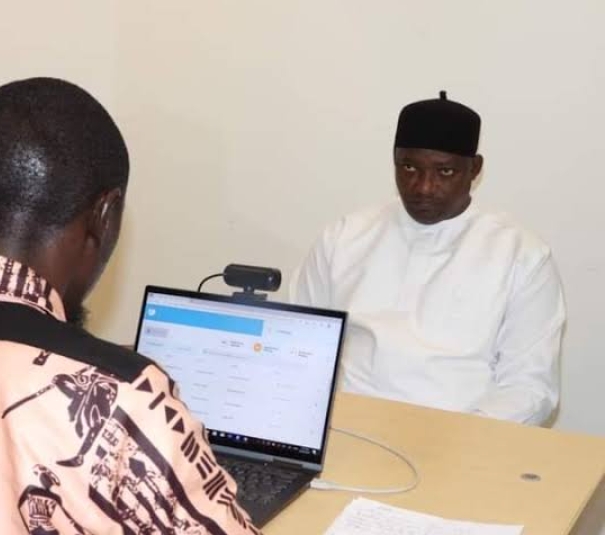Mr Baboucarr Janneh, who is the Deputy Director of National Health Insurance and Civil Registration of Birth Certificates at the Ministry of Health, revealed to source that more than one million Gambians have so far been recorded and issued with new digital birth certificates as well as national health insurance.
According to him, these programs have not stopped as they are continuously being implemented at different levels, including all public health facilities countrywide.
“We have our public health officers in all the public health facilities across the country to ease the process and make sure that all Gambians and children born in the Gambia with non-Gambian parents are registered and get the new birth certificates,” he stated.

The National Health Insurance Plan was launched by the Gambian Government in 2023 through their Ministry of Health to aid in providing cheaper and reachable healthcare to all the citizens. The registration process ran for three months countrywide for absolutely free of charge.
“The requirements for the acquisition of the digital birth certificates and national health insurance include are authentic birth certificate, valid national identification card, infant welfare care, antenatal care for newborns, passport or Alkalos attestation, and the supporting documents from applicant parents including one of the following: birth certificate, national identification card, passport, antenatal card or death certificate,” he said.
Read Also: NAFDAC Cracks Down on Counterfeit Antibiotic, Issues Public Warning
Customs Service Releases Press Statement on Senior Officer’s Tragic Death
The fresh system identified as Civil Registration and Vital Statistics involves service providers, supervisors, data entry clerks and verification officers to ensure that data given to each person is continuous, permanent, universal and kept confidential to the state.
As of now, there is no charge for registrations from birth to five years, but D12.5 is required for those above five years.
In his Department, Mr Janneh noted that the major challenges were mobility and people’s reluctance to register.
“We also need a lot of sensitization programs because now people are not responding as they used to,” he explained.


